Dear Colleagues,
The Organizing Committee is pleased to invite you to the II Gypworld Workshop. The workshop will be held from the 1st – 4th of April 2019 at Reggio di Calabria,Italy. Read More “II Gypworld Workshop”
A Global initiative to understand gypsum ecosystem ecology
Dear Colleagues,
The Organizing Committee is pleased to invite you to the II Gypworld Workshop. The workshop will be held from the 1st – 4th of April 2019 at Reggio di Calabria,Italy. Read More “II Gypworld Workshop”

The Organizing Committee was delighted to welcome the participants to 1st Gypsum Ecosystem Research Conference (GERC-2018). The conference aimed to initiate a series of International Conferences organised as part of the activities of the H2020 GYPWORLD project. It offered an International forum to interested scientists from around the world to present and discuss research results in all aspects related to GYPSUM ecology.
The 1st Gypworld workshop and the 1st Gypsum Ecosystem Research (GER) Meeting was held from the 3rd – 9th of June 2018 at Ankara University Faculty of Science, Ankara, Turkey. The meeting was attended by 180 Participants from 8 Countries and 4 travel grants were awarded to students.
Here are some highlights from the conference:

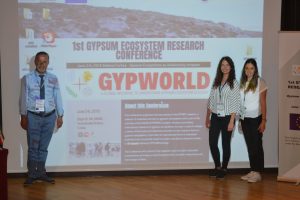
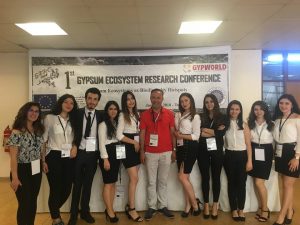
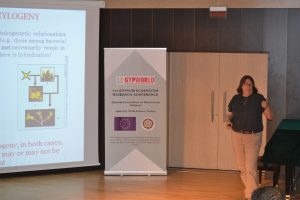
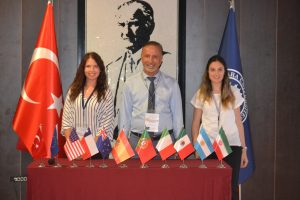
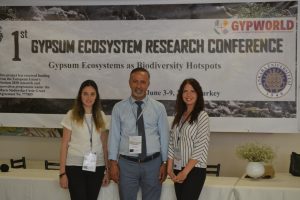
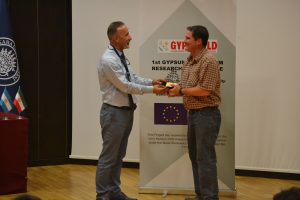
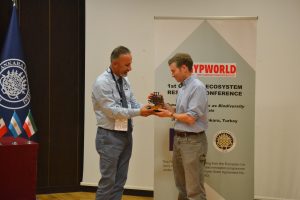
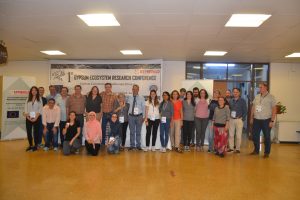
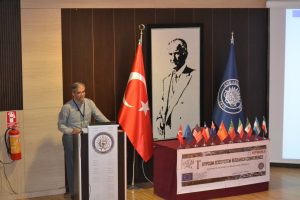
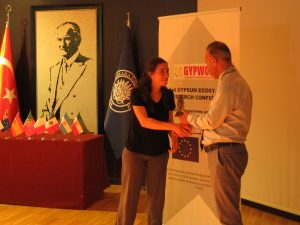
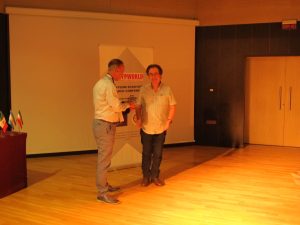
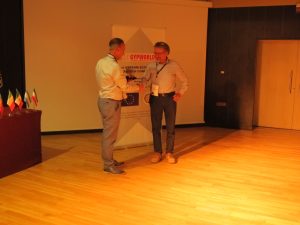
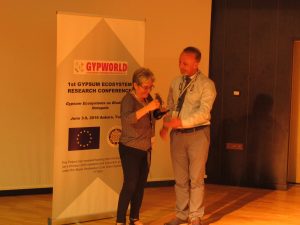
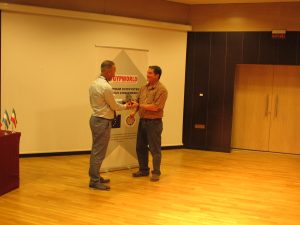
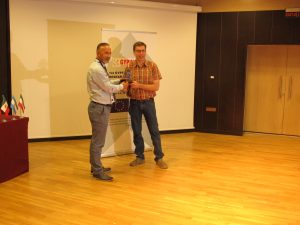
On the 3rd of June Eva Tobias Olarte (PhD in Gender Studies) held the training course on Women in Science at the Faculty of Sciences, University of Ankara, Turkey.
The objective of the course where to provide training on Gender Equality, in accordance with the aims of the Program Horizon 2020. Gender equality is a core value of the European Union. Although considerable progress has been made, gender inequality persists. There remain gender gaps in the labour market, with women still over-represented in the lower paid sectors, and under-represented in leadership and decision-making positions, both in the public and the private sectors
In particular, during the training course the students
The course was well received by the students and for many it was the first time they have had an opportunity to attend such a course and discuss the issues with others.
Thank you Eva!
In May 2018 a Spanish team of scientists from the Agencia Estatal Consejo Superior De Investigaciones Cientificas (CSIC) and Universidad Rey Juan Carlos (URJC) initiated some of the first secondments funded by the Gypworld project hosted by Tarbiat Modares University and the University of Tehran.
During their stay the Gypsum Ecosystemes Meeting was held where the following presentation were given:
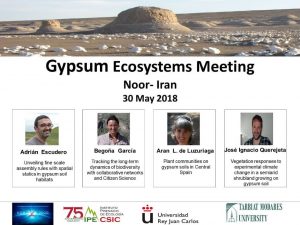
Here are a few photographs of some of the highlights from the meeting:
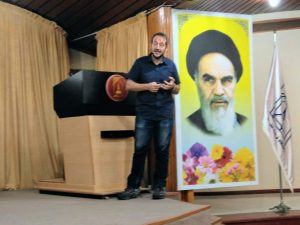
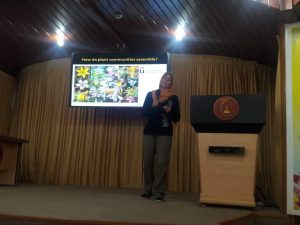
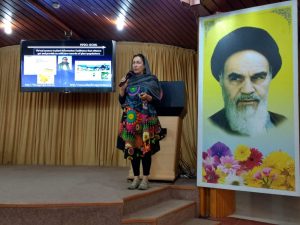
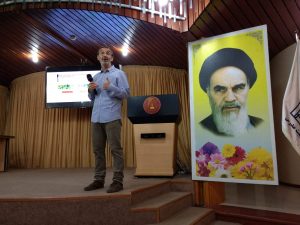
Licenciada (con Premio Extraordinario) y Doctora en Biología por la Universidad de Barcelona, actualmente es investigadora Ramón y Cajal en el Instituto Pirenaico de Ecología (CSIC). A lo largo de su carrera científica ha desarrollado su investigación en diversas instituciones de Reino Unido, Australia, Suiza, Turquía, México y Alemania. Ha participado en 22 proyectos de investigación nacionales e internacionales, siendo investigadora principal en siete de ellos. Ha supervisado varios estudiantes de máster, una tesis doctoral y está supervisando dos tesis doctorales más. Creadora de la red GYPNET para el estudio de los ecosistemas yesosos, actualmente es coordinadora del proyecto europeo H2020-MSCA-RISE GYPWORLD, destinado al estudio de los ecosistemas de yeso a nivel mundial, con 18 entidades participantes de 11 países distintos. Además, desde hace años ha participado en diversos comités de evaluación de proyectos (Israel Science Foundation, Agence Nationale de la Recherche France, Swiss National Science Foundation, ANEP, MINECO, Fondo para la Investigación Científica y Tecnológica- Ministerio de Ciencia, Tecnología e Innovación Productiva de Argentina, Asociación Española de Ecología Terrestre). Su investigación se centra en analizar los mecanismos de las plantas para ajustar su forma y función a las limitaciones abióticas y bióticas del ambiente en el que viven. Estas cuestiones son fundamentales para comprender la respuesta de las especies vegetales al cambio global y sus posibles consecuencias sobre el funcionamiento de los ecosistemas. Trabaja normalmente en ecosistemas semiáridos y montañosos y es un referente internacional en el estudio de la adaptación de las plantas a los suelos yesosos.
Se trata de un proyecto a escala mundial en el que especialistas en el estudio de distintos ámbitos relacionados con la vida en suelos de yeso trabajan juntos para avanzar en el conocimiento de estos ecosistemas a distintas escalas: desde los genes al ecosistema completo. Los suelos de yeso se extienden por todo el planeta, principalmente por zonas áridas y semi áridas. Son sustratos muy restrictivos para la vida vegetal pero, por su localización mayoritaria fuera de Europa y Occidente, han recibido muy poca atención por parte de la comunidad científica. Estudios realizados en España, EEUU y México los identifican con auténticos focos de biodiversidad, si bien la mayoría de estos sistemas están muy poco explorados. El objetivo de este proyecto es avanzar en su conocimiento: conocer qué organismos (plantas y líquenes) crecen en ellos, cómo han evolucionado hasta adaptarse a vivir en estos suelos, qué mecanismos permiten su supervivencia en un medio tan restrictivo y cómo les está afectando el cambio global; y dar a conocer el enorme valor de estos ecosistemas y la necesidad de conservarlos.
El cambio global incluye, no sólo el cambio climático, sino también el cambio en los usos del territorio. Además de los efectos climáticos, que sin duda serán más acentuados en las zonas áridas y semiáridas dónde aparecen los suelos de yeso, los ecosistemas de yeso se están viendo muy afectados por cómo estamos usando estos territorios. El desarrollo de la agricultura, las infraestructuras urbanas o la expansión de la minería, entre otros, suponen una grave amenaza para la conservación de estos sistemas. En España existen datos, por ejemplo, de cómo la fragmentación de los hábitats de yeso hace que las poblaciones de las plantas exclusivas de este tipo de suelos sean cada vez más débiles y vulnerables frente al cambio climático. Y lo más preocupante, estos efectos negativos se heredan de generación en generación. Pero los indicios están por todo el mundo… en México, la explotación de acuíferos para mantener la agricultura y la ganadería intensiva están secando las comunidades de las zonas yesíferas de Cuatrociénagas. En Irán, uno de los mayores productores mundiales de mineral de yeso, la minería desaforada está arrasando zonas enteras del país, como los aljezares de la provincia de Semnan, sin que existan planes para restaurarlas… Claramente, es necesario lanzar un mensaje de alarma sobre la situación de estos ecosistemas a nivel global.
La principal motivación fue poder incorporar participantes de fuera de Europa. En Europa, la mayoría de los suelos de yeso están localizados en España, por lo que muchos de mis colaboradores están fuera de la UE. Esto hacía imposible la participación de este proyecto en acciones intraeuropeas, como las COST. El esquema MSCA-RISE, por el contrario, se ajustaba perfectamente a nuestros intereses. Además, la realización de estancias de manera coordinada, nos permitía plantear (y financiar) expediciones a zonas ricas en yeso poco exploradas. Era perfecto para nuestros objetivos. La decisión de coordinar este proyecto fue algo natural, era el paso a dar en mi carrera científica. Tras varios años trabajando con los yesos de España había que ampliar la escala a nivel global. Creo que cuando tienes un sueño hay que ir a por él, eso fue lo que hice.
Para mí el principal reto está en saber realizar una buena coordinación sin dejar de lado la ciencia. Es lo que más me asusta actualmente. Nuestro consorcio es diverso y grande. Son 18 instituciones, pero además están en países muy diferentes (como por ejemplo EEUU e Irán), cada uno con sus condicionantes culturales y sus normas de funcionamiento. Además los proyectos MSCA-RISE están siendo difíciles de implementar, ya que dependen de la movilidad de personal y esto puede ser complicado. Espero que la ayuda de nuestra Project manager y la ilusión que nos hace a todos los participantes este proyecto, nos permitan solventar estas dificultades.
Este proyecto sitúa al IPE en el frente de avance del conocimiento sobre la ecología en suelos yesosos. Además, el IPE será depositario de las bases de datos que se generen y su herbario recibirá duplicados de los pliegos de herbario que se recolecten en las distintas expediciones botánicas previstas.
Para los investigadores que participan en él, este proyecto supone dar un salto cualitativo en sus investigaciones. Abordar preguntas a una escala global, contar con colaboradores en todo el mundo… Sin duda será un gran impulso para nuestras carreras y nuestras líneas de investigación.
El proyecto cuenta con paridad de género entre los participantes, así como entre los líderes de las distintas tareas y paquetes de trabajo. Además, entre la formación ofertada por el proyecto hay un curso en igualdad de género en ciencia que tendrá lugar esta primavera en Ankara. Esperamos que este curso pueda ayudar a ir cambiando la situación de las mujeres en el mundo científico o, por lo menos, que ayude a la reflexión sobre la situación actual y cómo cambiarla.
La divulgación es fundamental para garantizar el retorno de la inversión hecha por la sociedad en la investigación, además, es uno de los requisitos del horizonte H2020. Nuestro proyecto prevé la realización de diversas actividades de divulgación, como la realización de varios “Gypsum Ecosystems InfoDays”, eventos abiertos al público en general en el que se darán a conocer los ecosistemas yesíferos y la investigación que estamos desarrollando en ellos; o la publicación de diversos documentales mostrando el desarrollo de las expediciones realizadas en el marco del proyecto.
Lamentablemente las actividades de divulgación científica están muy poco reconocidas en nuestro país, y la investigación en recursos naturales no es una excepción. Supongo que es algo que tendrá que ir cambiando en el futuro, aunque sea para acercarnos al modelo europeo…
El Programa LIFE+ tiene una componente de transferencia y retorno a la sociedad muy importante y podría ser un programa interesante para proyectos, por ejemplo sobre conservación o educación ambiental, desarrollados sobre suelos yesíferos. No obstante, el desarrollo de las líneas de investigación más básicas y la proyección internacional (fuera de Europa) de nuestro consorcio tiene difícil cabida en la mayoría de convocatorias H2020 (convocatorias Ideas del ERC aparte), ojalá la situación cambie en el futuro.
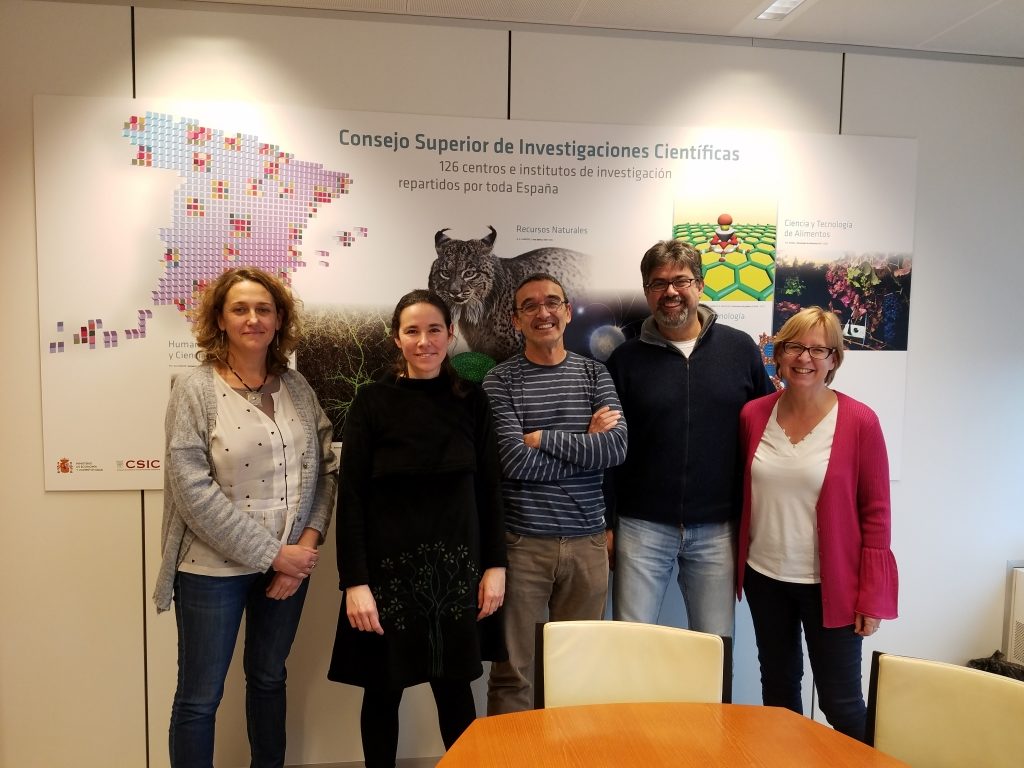
The research Project ‘GYPWORLD’, is a global initiative to understand gypsum ecosystem ecology and was launched after the kick- off meeting held in Brussels on the 16th and 17th of January 2018. It is a global initiative, led by the Pyrenean Institute of Ecology-CSIC (IPE_CSIC) which is funded by the European research program Horizon 2020 and is a Marie Skłodowska-Curie Action which fosters International and inter-sectoral cooperation through the Research and Innovation Staff Exchange (RISE). The project brings together four continents for the first time to study gypsum ecosystems. A total of 18 institutions from 11 different countries (Spain, Portugal, Italy, Cyprus, Turkey, Iran, the United States, Mexico, Chile, Argentina and Australia) are participating in the project, which will run until 2021 with a total funding of € 724,500. In addition to the IPE-CSIC, who are coordinating the project, other Spanish partners include the Rey Juan Carlos University of Madrid and the University of Almeria.
To date the study of gypsum soils has been carried out in isolation in a few of the areas where gypsum soils are available, particularly Spain. However, gypsum soils are available over the Globe and many areas are virtually unexplored. Sara Palacio, the project coordinator and a post-doctoral researcher from IPE-CSIC explained that the scientists are interested in finding out what plants grow in these systems, what it means to live in these types of soils, how the plants have adapted to them and what possible threats they face.
To find the answers to these questions a global approach that allows us advance in this field of knowledge is essential and the current objective is to find out if the mechanisms and processes that govern some of the gypsum ecosystems of the world serve for others. “This research seeks to identify global processes that are typical of these soils, regardless of the origin of the flora and the climatic conditions of the different regions in which they appear,” adds Sara.
These ecosystems can be found in the driest regions of the planet, such as the Atacama desert, South America, the Lut desert, Iran or the Namib desert, Africa. Therefore, organisms that grow on gypsum normally have little water. In addition, gypsum soils share a series of physical and chemical characteristics which are limiting for plant life. “What undoubtedly changes from one region to another is the type of organisms that grow there, their evolutionary origin and, in many cases, the climate to which they are exposed. For example, in gypsum soils from Spain we have a Mediterranean climate while in the desert of Chihuahua (USA-Mexico) it is a monsoon climate and the rains coincide with the hottest time of the year: August”, illustrates Sara.
To fulfil its objectives, ‘Gypworld’ will be developed in multidisciplinary work blocks. On the one hand, expeditions will be carried out to characterize the diversity of plants and lichens of these environments and molecular phylogenetic studies will be carried out to unravel the origin and evolution of the gypsum species. On the other hand, physiological analyses will allow to understand the mechanisms of adaptation of vegetation to these environments which are so hostile to life.
The results of ‘Gypworld’ will also allow us to measure the scope of global change on this type of ecosystem: not only the impact of climate change, but also changes in the use of land by man.
The development of agriculture, urban infrastructures or the expansion of mining, among others, pose serious threats to the conservation of these systems. In Spain there are data showing how the fragmentation of gypsum habitats makes plant populations exclusive to this type of soil increasingly weak and vulnerable to climate change. However, probably the most serious problem is the perception we have of these ecosystems as “degraded deserts” that have nothing to offer and for this reason we are not concerned about destroying them. One of the main tasks of ‘Gypworld’ is to explain to the population living alongside these systems the enormous value they have: they are strongholds of biodiversity where plants have developed fascinating mechanisms to survive. “It is urgent to be aware of the enormous ecological value of these regions to be able to protect them worldwide,” concludes Sara Palacio.
The GYPWORLD Partnership includes:
This project has received funding from the European Union’s Horizon 2020 research and innovation programme under the Marie Slodowska-Curie Grant Agreement No. 777803
Dear colleagues,
The GYPWORLD project is now offering 5 travel grants to students interested in attending the 1st Gypsum Ecosystem Research Conference (GERC-2018), to be held from the 3rd – 9th of June 2018 at Ankara University Faculty of Science, Ankara, Turkey.
Of the five travel grants, three will be awarded to students from low and middle income countries (as defined by the World Bank: https://datahelpdesk.worldbank.org/knowledgebase/articles/906519-world-bank-country-and-lending-groups), the criteria for the selection of candidates will be a motivation letter and the contribution to be presented at the conference, which will be evaluated by the scientific committee of the conference.
Candidates should send their motivation letter and contribution to the GYPWORLD project manager: Emma Lythgoe: emma.lythgoe@csic.es
Further information about the GERC 2018 can be found at the official website of the conference: http://www.gerconference.org